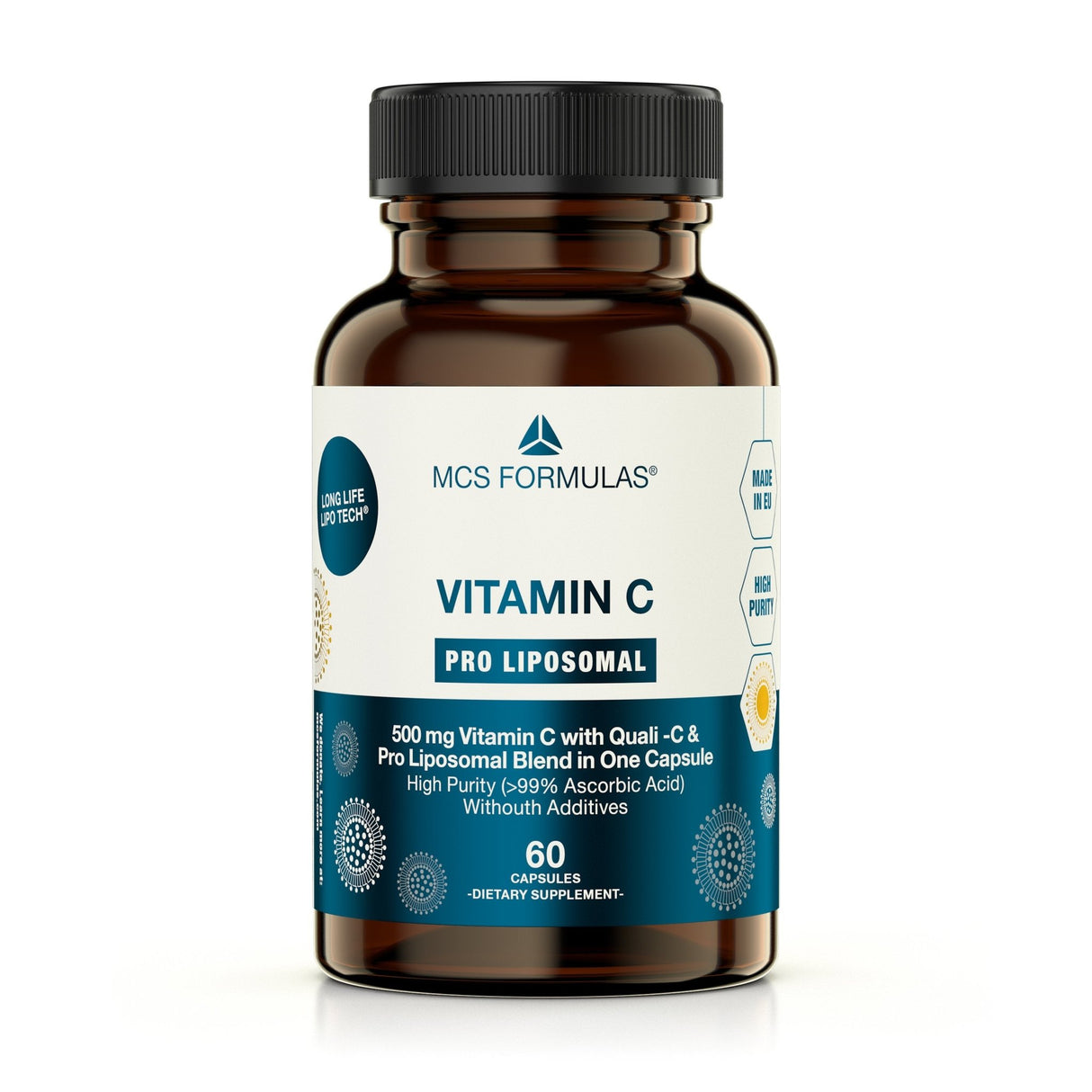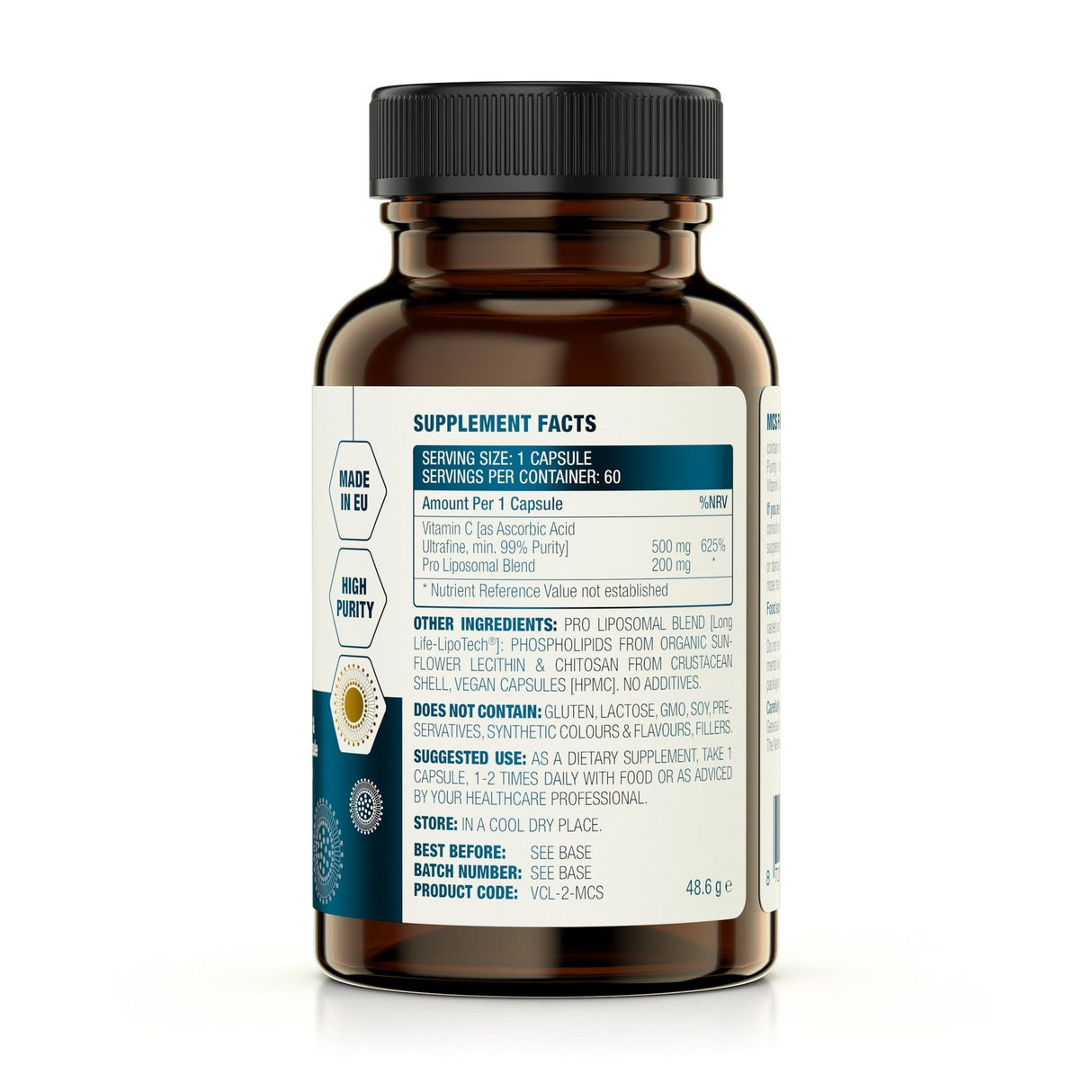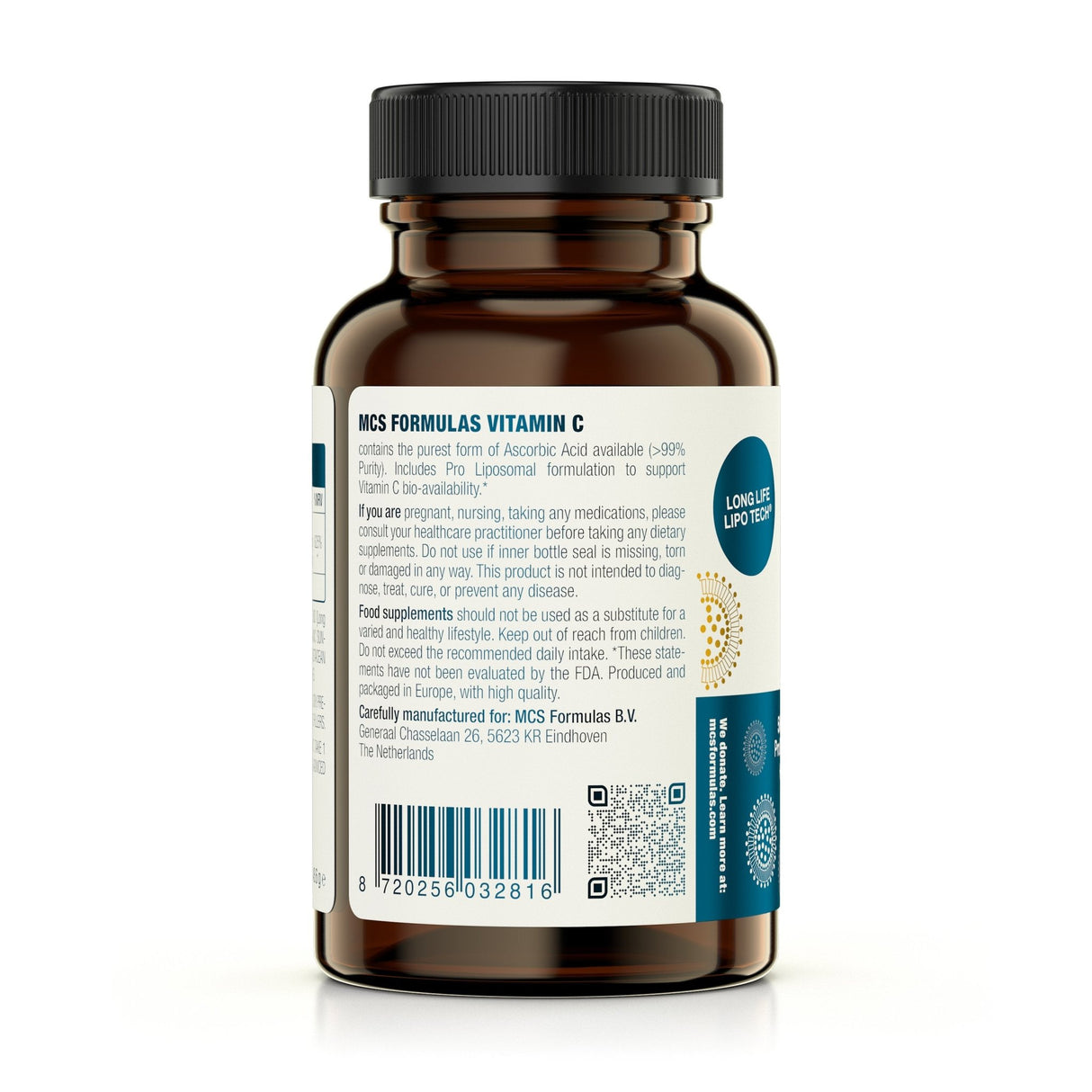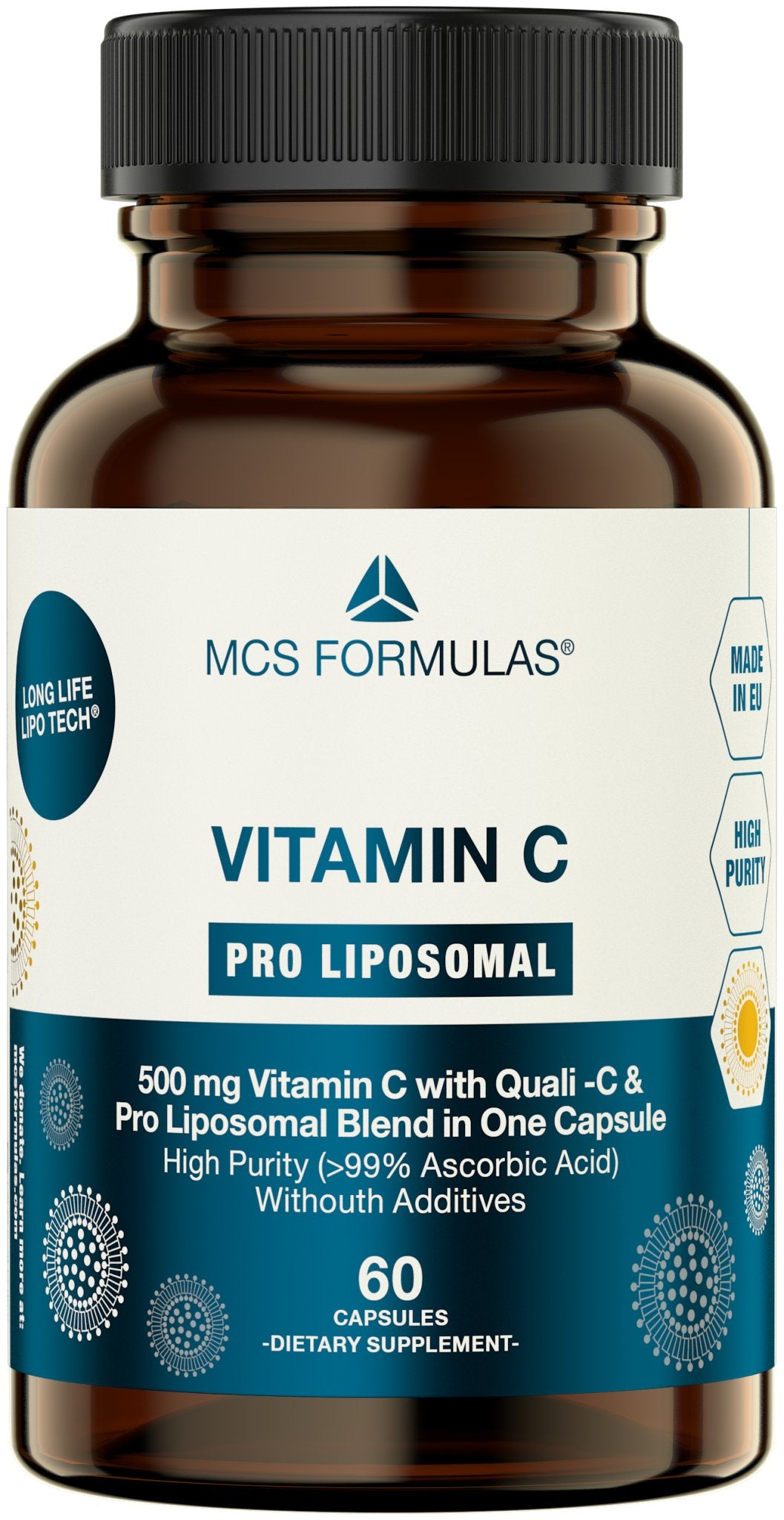Vitamin C Pro Liposomal
Vitamin C Pro Liposomal Black is backordered and will ship as soon as it is back in stock.
Vitamin C Pro Liposomal (500 mg – 60 capsules)
Vitamin C Pro Liposomal is an advanced dietary supplement that combines purity, bioavailability and ease of use to provide optimal support for the immune system, energy levels and general health. Each capsule contains 500 mg of pure Quali©-C ascorbic acid and 200 mg of Pro Liposomal blend with LongLifeLipoTech™ technology, which ensures superior absorption and stability compared to traditional vitamin C supplements. The product is gluten-free, lactose-free, GMO-free and without artificial additives, and is suitable for both adults and those with specific dietary preferences.
Benefits and effects
- Immune defense: Vitamin C contributes to the normal functioning of the immune system, especially during and after physical activity.
- Antioxidant protection: Protects cells against oxidative stress and free radicals that can damage the body's cells.
- Collagen formation: Supports the formation of collagen, which is important for the skin, blood vessels, cartilage, bones, gums and teeth.
- Energy metabolism: Contributes to reduced fatigue and promotes energy turnover.
- Psychological health: Helps maintain normal mental health and nervous system function.
- Iron uptake: Increases the absorption of iron from the diet, which is essential for the transport of oxygen in the blood.
- Cardiovascular system: Helps maintain healthy homocysteine levels, which supports good cardiovascular health.
Technical details and specifications
-
Contents per capsule:
- Vitamin C (Quali©-C) [ascorbic acid, min. 99% purity]: 500 mg (625% of recommended daily intake).
- Pro Liposomal Blend (LongLifeLipoTech™): 200 mg.
- Other ingredients: Phospholipids from organic sunflower lecithin, chitosan from shellfish shells, HPMC (vegan capsule).
- Serving size: 1 capsule.
- Number of servings per container: 60.
- Free for: Gluten, lactose, GMO, soy, preservatives, synthetic colors and flavors, fillers.
- Source: QUALI©-C, a registered trademark of DSM.
- Storage: Store in a cool, dry place.
Recommended use
Take one capsule once or twice daily, or as recommended by a healthcare professional. This product is suitable for daily use by adults who wish to support the immune system, reduce fatigue and promote general good health.
Disclaimer and disclaimer
Allowed to be used by adults. All use of nutritional supplements is at your own risk and should be done in consultation with a doctor. The recommended daily dose should not be exceeded. Dietary supplements should not replace a varied diet. Keep out of the reach of children. Uno Vita AS does not claim that the products we market can cure disease. The information in this text is for informational purposes only and is not intended as medical advice.
Scientific references
- Carr, A. C., & Maggini, S. "Vitamin C and Immune Function." Nutrients, 2017.
- Padayatty, S.J., et al. "Vitamin C as an Antioxidant." Annals of Internal Medicine, 2003.
- Johnston, C.S., et al. "The Antioxidant Role of Vitamin C in Cardiovascular Health." The American Journal of Clinical Nutrition, 1996.
- Levine, M., et al. "Vitamin C Pharmacokinetics in Healthy Volunteers." Proceedings of the National Academy of Sciences, 1996.
- Duarte, T. L., & Lunec, J. "Review: Vitamin C and Oxidative Stress." Free Radical Biology & Medicine, 2005.
- Jialal, I., & Grundy, S. M. "The Role of Vitamin C in Preventing Atherosclerosis." American Heart Journal, 1993.
- Hemilä, H. "Vitamin C and Common Cold Incidence." The Cochrane Database of Systematic Reviews, 2013.
- Jacob, R. A. "Vitamin C Function and Status in Chronic Disease." Journal of Nutrition, 1999.
- Gaby, A. R. "Vitamin C: Therapeutic Perspectives." Journal of Orthomolecular Medicine, 2000.
- Naidu, K. A. "Vitamin C in Human Health and Disease." Scandinavian Journal of Clinical and Laboratory Investigation, 2003.
- Frei, B., & Trabe, M. G. "The Role of Vitamin C in Neuroprotection." Annals of the New York Academy of Sciences, 2001.
- Hornig, D. "Distribution and Metabolism of Ascorbic Acid." Annals of the New York Academy of Sciences, 1975.


















